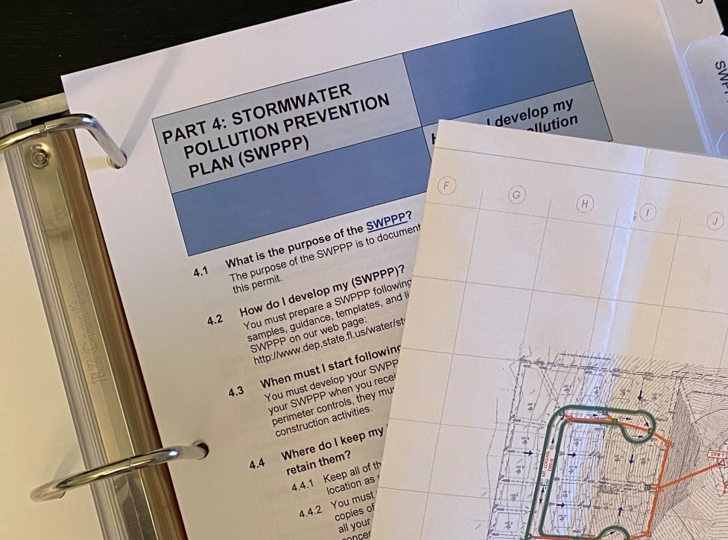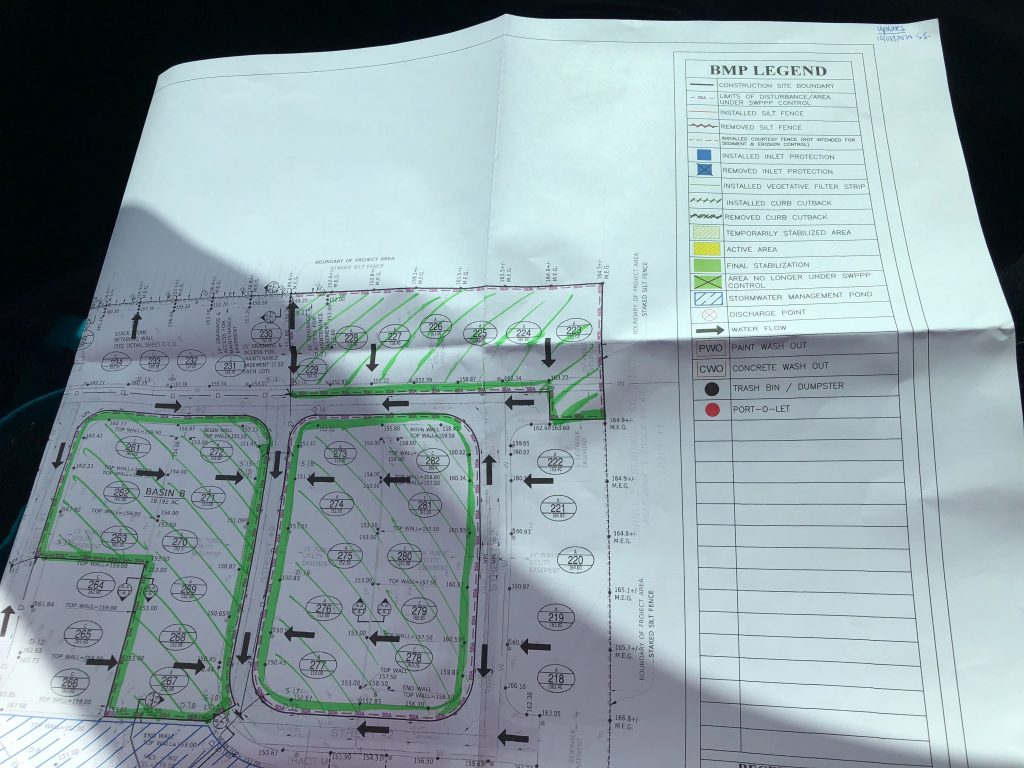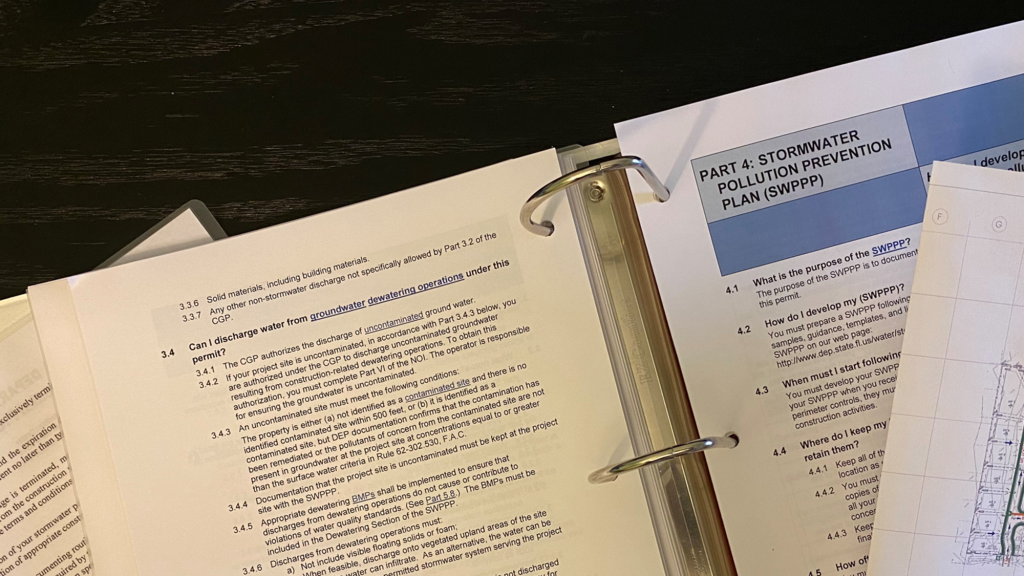
In the stormwater compliance business, various tools and technologies are used to manage and maintain stormwater systems and ensure compliance with environmental regulations. The primary reason for stormwater management is to mitigate the adverse environmental impacts associated with stormwater runoff from a construction site. Stormwater management is crucial for many reasons.

The most critical step to the stormwater management strategy is the Stormwater Pollution Prevention Plan (SWPPP). This is the primary document, required by the Florida Department of Environmental Protection that outlines the strategies and procedures for managing stormwater at a specific construction site, ensuring compliance with regulations.
The SWPPP will describe many different tools, processes, and Best Management Practices (BMPs) to ensure that our waterways stay clean. The SWPPP will describe how BMPs are strategically placed to stop erosion and other contaminants from leaving a site.
If you are building on a piece of land in Florida that disturbs over one acre or is part of a Larger Common Plan of Development or sale, you must obtain coverage under the Florida Construction Generic Permit (FCGP) which is part of the National Pollutant Discharge Elimination System (NPDES) stormwater program. Florida also requires the construction site operator to have a Stormwater Pollution Prevention Plan (SWPPP) prior to filing for the permit. The permit coverage is achieved through filing a Notice of Intent (NOI). Under the FCGP, the responsible authority must implement suitable pollution prevention techniques to reduce erosion and sedimentation and responsibly manage stormwater.

The SWPPP describes all a construction site operator’s activity to prevent stormwater contamination, control sediment and erosion, and comply with the requirements of the NPDES program. A SWPPP is required for construction site operators because stormwater runoff from construction sites can cause significant impairment to local waterbodies.
The following, but not limited to, objectives are typically deemed necessary to effectively manage stormwater and ensure compliance with environmental regulations:
- Compliance with Regulations: The SWPPP should ensure compliance with all applicable federal, state, and local regulations related to stormwater management.
- Identification of Potential Pollutants: Identify and assess potential sources of pollution at the site.
- Best Management Practices: Implement and describe specific BMPs that will be employed to prevent or reduce pollution in stormwater runoff.
- Site Map and Description: Include detailed site maps and descriptions to indicate areas of potential pollutant sources.
- Monitoring and Inspections: Establish a schedule and procedures for monitoring and inspecting the site to ensure that BMPs are working effectively.
- Employee Training: Outline a training program for employees and contractors.
- Recordkeeping and Reporting: Specify recordkeeping and reporting requirements, including the documentation of inspections, monitoring results, and any corrective actions taken.
- Waste Management: Include procedures for the proper storage, handling, and disposal of hazardous materials, wastes, and other potential pollutants.
- Documentation and Reporting: Maintain detailed documentation of SWPPP implementation and submit required reports to regulatory authorities in a timely manner.
- Environmental Education: Promote environmental education and awareness among employees and stakeholders to foster a culture of responsibility for stormwater management.
The specific objectives and details of a SWPPP can vary depending on the site, the nature of activities conducted, and the applicable regulations. It is important to collaborate with experienced professionals and consultants who are knowledgeable about local regulations and best practices in stormwater management when developing a SWPPP. A SWPPP is your starting point in developing your stormwater management plan in case a local, state, or federal inspector visits your site, and begins inspecting the various best management controls, and stormwater management systems currently in place. Enlisting KCI to help develop and maintain your SWPPP will dramatically reduce the concern of being out of compliant. KCI is an expert at creating, documenting, implementing, and managing your SWPPP. Visit our KCI SWPPP Request Form to begin now engaging us to help you prepare and plan.
KCI can consult with you and help design, document, and implement your SWPPP. Call KCI today on 888-346-7779.



